Doctorate in Islamic Business
Doctorate in International Business specialization in Islamic Business (e-learning,  )
)
The objectives of the Professional Doctorate in International Business (DIB) specialization in Islamic Business (3 years, 180 ECTS) taught by EENI Global Business School are to train the doctoral student to be able to research on topics related to business in the Islamic Economic Area (Asia, Africa, the Middle East, and Europe):

Thus, a Doctoral Student can apply creative solutions and take the appropriated business decisions related to the Islamic Economic Area.
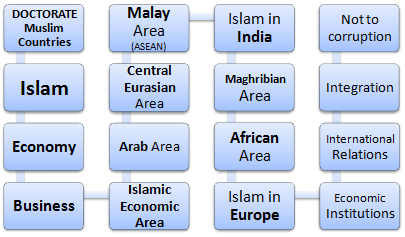
- Intra-Islamic trade
- Islamic Finance and Banking
- Economy of the Muslim Countries
- Regional integration of the Islamic Markets
- Islamic Economic Areas (Arab, African, Maghrebian, Eurasian)
- The Pillars of Islam
- Influence of Islam on business
- Leading Islamic economic institutions (Organization of Islamic Cooperation, Arab League, Islamic Development Bank)
- Business in the Islamic Markets
- Muslim businesspeople
 Enrol / Request for Information
Enrol / Request for Information

- Tuition Fees: EUR 3,000
- Duration: maximum of three calendar years Maximum of three calendar years since the formalization of the Enrollment up to the thesis deposit. If, after the three calendar years period the Doctoral Student has not deposited thesis, the Doctorate Programme Direction may authorise an extension of up to two years.
- Credits: 180

- Open Online Enrollment
- Download the Admission Form
- Download the syllabus of the Doctorate (PDF)
Intended for graduates and professionals who wish to continue their professional career in the field of international business with an emphasis in the Islamic Economic Area.
The Doctorate is part of the category of the Doctorate in International Business (DIB), which has the dual aim of contributing to the knowledge and practice.
A Professional Doctorate in Islamic Business that fits your schedule and helps you to get a better employment.
Language: 
- All the subjects offered are available in English
- Approximately 40% of the subjects are also available in French, Spanish, and/or Portuguese
- Thus, the Doctoral Student can perform this doctorate entirely in English (or French, Spanish or Portuguese)
- The student should have a sufficient level to study the subjects in these languages
 Doctorado en negocios en los Países Musulmanes
Doctorado en negocios en los Países Musulmanes  Doctorat en affaires dans les marchés musulmans.
Doctorat en affaires dans les marchés musulmans.
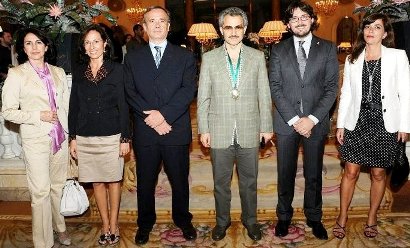
EENI delivers to HRH Prince Alwaleed bin Talal a Master Honoris Causa.
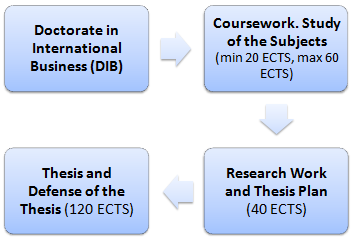
- Coursework. Study of the Subjects (minimum 20 ECTS, maximum 60 ECTS)
- Research Work and Thesis Plan of the Doctorate (40 ECTS)
- Thesis and Thesis Defense (120 ECTS)
EENI provides a range of Related Subjects to the Islamic Economic Area. The Doctoral Student can select the most suitable subjects depending on the thesis. The Doctoral Student selects the subjects once formalized the enrollment.
The Doctoral Students can choose the subjects from those offered by EENI with a minimum of 20 ECTS and a maximum of 60 ECTS.
To facilitate the subject selection, these are organized into several blocks:
- Islam (PDF) (structure) (5 ECTS)
- Islamic Economy
- Islam and Business. Businesspeople
- Islamic Economic Area
- Arab Economic Area. The Middle East (PDF) (structure)
- Central Eurasian Economic Area (PDF) (structure)
- Malay Economic Area (ASEAN) (PDF) (structure)
- Islam in India (Bharat)
- Maghrebian Economic Area (PDF) (structure) (9 ECTS)
- African Economic Area (West and East Africa)
- Islam in Europe
- Islamic Economic Institutions (PDF)
- International Islamic Relations
- Economic Integration of the Islamic Civilization
- Combating corruption in business in the Muslim Markets (PDF) (structure)
Please, see below for more information
Research Areas of the Doctorate in Islamic Business:
- Doctoral Student should select the most appropriate subjects for his thesis
- Doctoral Student can use any possible subject combination
- Minimum ECTS to be selected is 20, maximum is 60
Module - Islam (5 ECTS)
Islam and business: pillars of Islam, Islamic Economics, Islam and business, Muslim Businesspeople, Arab Development Funds.
- The Five pillars of Islam
- Sunni and Shi'a Muslims
- Sharia
- Islamic Jurisprudence
- Islamic Economics and Banking
- Economic Impact of Zakat
- Introduction to Arabic
- Ummah (Islamic Community) in the world
- Islam in a globalized economy
- Human Rights in Islam
- Negotiation in the Muslim Countries
- Muslim entrepreneurs
Download the syllabus: “Islam” (PDF).
- Arab Official Development Assistance
- BADEA
- Arab Fund for Economic and Social Development
- Arab Monetary Fund
- Saudi Fund for Development
- Arab Trade Financing Programme
- OPEC Fund
- Abu Dhabi Fund for Development
- Kuwait Fund for Arab Economic Development
- Arab Gulf Programme for United Nations Development Organizations
Credits of the module “Arab Development Funds”: 1

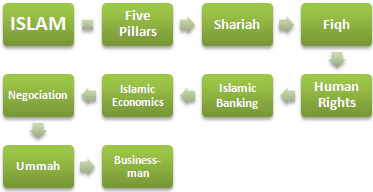
Module - Islamic Economic Area (9 ECTS)
- Economic Profile of the Islamic Economic Area
- Islam: the common factor of the Islamic Civilization
- Islamic Economic Areas;
- Arab Economic Area (PDF)
- Central Eurasian Economic Area (PDF)
- Malay Economic Area
- Maghrebian Economic Area (PDF)
- African Economic Area
- West African Economic Area (PDF)
- Central African Economic Area
- East African Economic Area (PDF)
- Economic Integration of the Islamic Civilization
- Interactions of the Islamic Civilization with the other civilizations

Module - Economic Organizations related to the Islamic Countries (5 ECTS).
- Arab League
- Greater Arab Free-Trade Area (GAFTA)
- Economic Commission for Western Asia (ESCWA)
- Islamic Development Bank
- Organization of Islamic Cooperation
- Islamic Chamber of Commerce and Industry
- Islamic Centre for Development of Trade
- Economic Centre for Islamic Countries
- Committee for Economic Cooperation
- Islamic Trade Preferential System (TPS-OIC)
Free Trade Agreements related to the Muslim Countries:
- Agadir Agreement
Islamic International Relations:
- Summit of South American-Arab Countries
- Asia-Middle East Dialogue
- Africa-Asia Strategic Partnership
- Colombo Plan
- Asia Cooperation Dialogue
- Boao Forum for Asia
- Forum India-Africa
- Africa-BRICS Countries
- IORA
- European Union: Generalized System of Preferences, Euro-Mediterranean Partnership
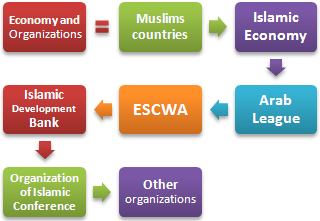
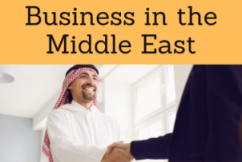
Module - Business in the Middle East (24 ECTS)
- Gulf Cooperation Council (GCC)
- Bahrain
- Kuwait
- Oman
- Qatar
- Saudi Arabia: the Central State of the Islamic Civilization?
- United Arab Emirates
- Countries not members of the CCG
- Arab Women and business: Sheikha Lubna Bint Khalid Al Qasimi, Lubna Olayan, Amina Al Rustamani, Hayat Sindi, Haifa Al-Mansour, Reem Ebrahim Al-Hashimi, Tawakkol Karman, Ayah Bdeir, Shaikha Al Bahar, Randa Ayoubi, Shaikha Al Maskari, Hanan Al Kuwari, and Maha Al-Ghunaim
- Muslim Businessman of the Middle East: HRH Prince Alwaleed bin Talal, Sheikh Mohammed Hussein Ali Al-Amoudi, Sheikh Mohamed Bin Issa Al Jaber, Sulaiman Al-Rajhi, Nasser Al Kharafi, Abdul Aziz Ghurair, Yusuf Bin Ahmed Kanoo, Majid Al Futtaim, Mohammed Al-Barwani, and Jawad Ahmed Bukhamseen
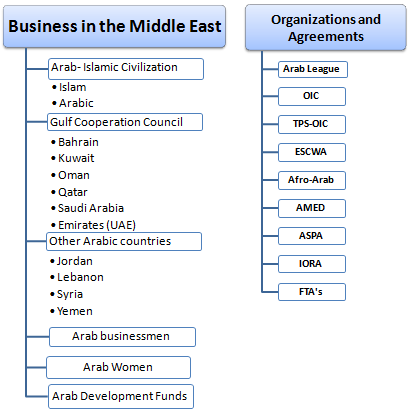
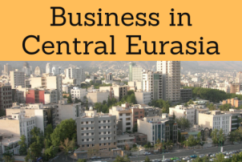
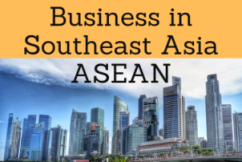
Module - Asian Muslim Markets.
- The Ummah (Muslim Community) in Asia
- Asian Muslim Businesspeople: Muhammad Yunus, Sandiaga Salahuddin Uno, Mian Muhammad Mansha, Muhammad Abdul Mannan, Dewan Yousuf Farooqui, Salman Rahman, Tan Sri Mokhtar, Wipro Azim Premji, and Yusuf Hamied
- Relationships of the Islamic Civilization with the Japanese, Hindu, Buddhist, and Sinic Civilization
- ESCAP
- Asian Development Bank
- FEALAC
- Asian Clearing Union (ACU)
- SAARC
- Bay of Bengal Initiative (BIMSTEC)
- South Asia Subregional Economic Cooperation (SASEC)
- Asia-Pacific Trade Agreement (APTA)
- Bangladesh (149 million Muslims)
- Maldives
ASEAN Muslim Countries:
- ASEAN
- Islam in the ASEAN: 42% of the population of the ASEAN
- ASEAN Economic Community
- ASEAN Free-Trade Area (AFTA)
- Indonesia-Malaysia-Thailand Growth Triangle (IMT-GT)
- East ASEAN Growth Area (BIMP-EAGA)
- Brunei
- Indonesia: The country with the largest Muslim population in the world
- Malaysia
- APEC
- Transpacific Strategic Agreement (CPTPP)
- Asia-Europe Meeting (ASEM)
- FEALAC
Download the syllabus “ASEAN Markets” (PDF).
Central Eurasia
- Iran: a Muslim country with a Shiite majority.
- Islamic Revolutionary Guard
- Bonyads
- Uzbekistan
- Pakistan
- Kyrgyz Republic
- Kazakhstan
- Turkmenistan
- Tajikistan
- Turkey
- Shanghai Cooperation Organization (SCO)
- Commonwealth of Independent States (CIS)
- Organization for Economic Cooperation (OCE)
- Cooperation Council of Turkic Speaking States
- Eurasian Economic Union
- Central Asia Regional Economic Cooperation (CAREC)
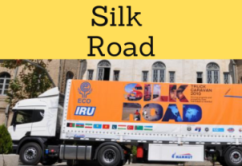
- Almaty-Bishkek Corridor
- Bangladesh-Myanmar Corridor
- China-Pakistan Corridor
- China-Central-West Asia Corridor
- India-Afghanistan Corridor
- Europe-Caucasus-Asia Corridor
Download the syllabus “Business in Central Eurasia” (PDF).
- India (14% of the Indian Population is Muslim - 172 million Muslims, the second religion in India and the third country in the world by the number of Muslims)
- Islam in India
- Hindu-Muslim Businesspeople: Azim Premji and Yusuf Khwaja Hamied
- Influence of Islam on the Hindu Civilization
- Sikhism (a syncretic religion between Islam and Hinduism)
- Note: EENI offers to students different Related Subjects to India (26 ECTS)
Download the syllabus “India” (PDF).
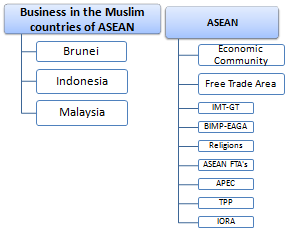
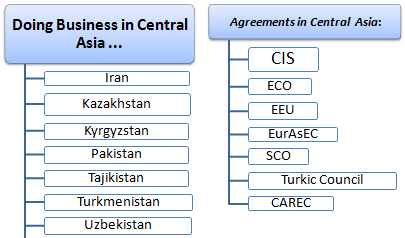

Module - African Muslim Markets.
- Islam in Africa
- African Muslim historians
Key African Economic Institutions:
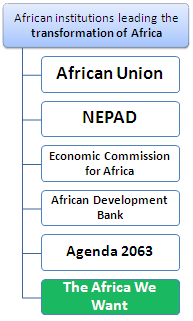
- African Union
- AUDA-NEPAD
- Economic Commission for Africa
- African Development Bank
Download the syllabus “African institutions” (PDF).
Other African Organizations:
- Africa-Arab Countries Cooperation
- BADEA
- Organization for the Harmonization of Business Law in Africa (OHADA)
- COMESA-EAC-SADC Tripartite Agreement
- African Continental Free-Trade Area (AfCFTA)
- CEN-SAD
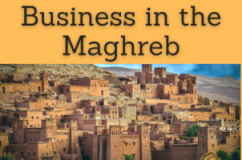
Business in the Maghreb (9 ECTS).
- Arab Maghreb Union
- Algeria
- Morocco
- Tunisia
- Mauritania
- Libya
- Maghrebian Ports
- Maghrebian Businesspeople: Ali Haddad, Othman Benjelloun, Anas Sefrioui, Aziz Akhannouch, Miloud Chaabi, and Mohamed Hassan Bensalah
Download the syllabus “Maghreb” (PDF).
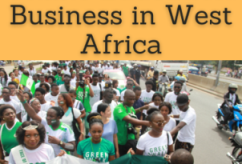
Western African Muslim Countries.
In West Africa, 50% of the population is Muslim.
- Islam in West Africa
- Economic Community of West African States (ECOWAS)
- West African Economic and Monetary Union (WAEMU)
- West African Monetary Zone (WAMZ)
- Niger Basin Authority
- Organization for the Development of the Senegal River
- Mano River Union
- Burkina Faso
- Gambia
- Guinea
- Guinea-Bissau
- Mali
- Nigeria: 50% of Muslim population, the first African Economy
- Niger
- Senegal
- Sierra Leone
- Nigerian Muslim Businessman: Alhaji Aliko Dangote (the richest African), PhD Amina Odidi, Tunde Folawiyo, Hajia Bola Shagaya, Adewale Tinubu, PhD Alhaji Muhammadu Indimi, Olufemi Otedola, and Abdulsamad Rabiu
- West African Ports
Download the syllabus “West Africa” (PDF).
Regional Economic Integration in West Africa:
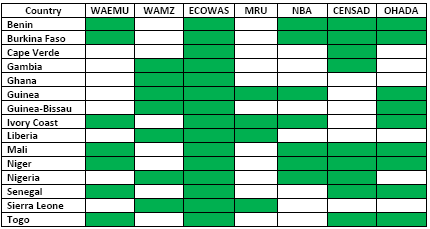
EENI in Burkina Faso
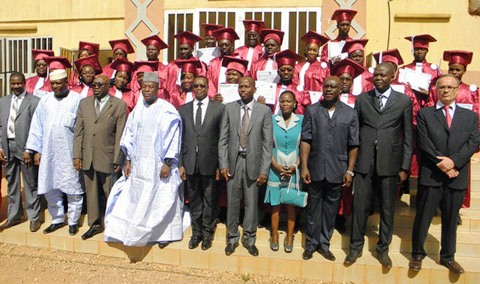
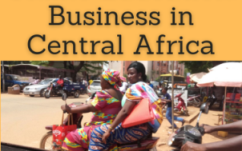
Central African Muslim Countries:
- Chad
- Economic Community of Central African States (ECCAS)
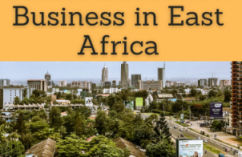
East African Muslim Countries.
- Common Market for Eastern and Southern Africa (COMESA)
- Intergovernmental Authority on Development (IGAD)
- Nile Basin Initiative
- Comoros
- Djibouti
- Egypt
- Eritrea
- Somalia
- Sudan
- Kenya, Tanzania and Mozambique also have significant Muslim populations
- Businessperson in East Africa: Mohamed Ibrahim, Mohamed Mansour, Hassan Abdalla, Said Bakhresa, Tarek Talaat Moustafa, Reginald Mengi, Mohammed Hussein Ali Al-Amoudi, Minoush Abdel-Meguid, Ahmed Mekky, Osama Abdul Latif, Iman, and Naushad Merali
- East African Ports
Download the syllabus “East Africa” (PDF).
Regional Economic Integration in East Africa:
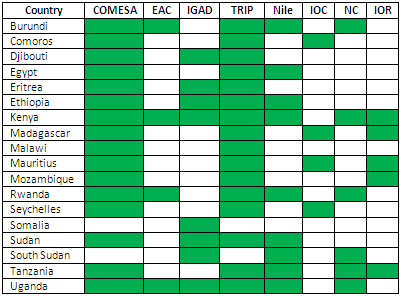
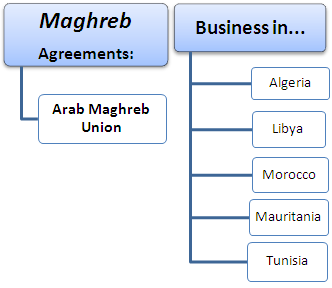
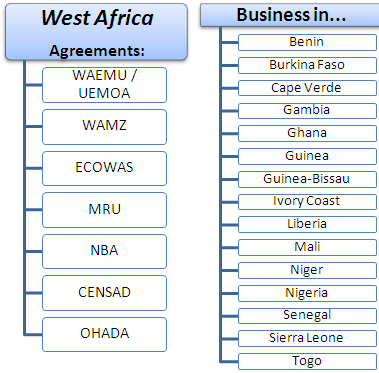
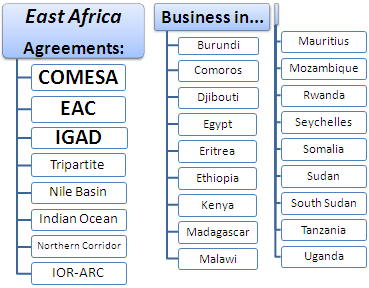
Module - European Muslim Markets:
- Islam in Europe
- Azerbaijan
- Albania
- Bosnia and Herzegovina
- Turkey (Turkey-EU Customs Union)
- Regional Organization for Democracy and Economic Development (GUAM)
- Central European Free Trade Agreement (CEFTA)
- Black Sea Economic Cooperation
- Black Sea Synergy
- Economic Commission for Europe
The main objective of the module Doing Business in the European Muslim Countries is to provide an overview of the European Islamic markets and the business opportunities in these markets.
- To learn to do business in the European Islamic markets (Azerbaijan, Turkey)
- To analyze the foreign direct investment in the main investment sectors
- To know the Trade Agreements in the region
- To identify the regional Organizations related to the Islamic European Countries (Black Sea Synergy, Organization of the Black Sea Economic Cooperation...)
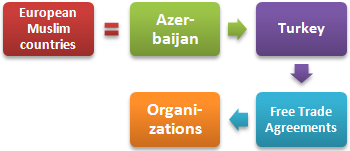
Module - American Muslim Markets
The Case of Guyana and Suriname (members of the CARICOM).
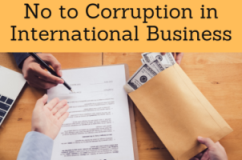
Module - Fight against corruption in the Muslim Countries (4 ECTS).
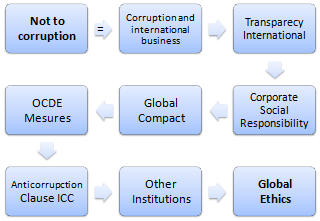
To be admitted to the Professional Doctorate, the students must have earned a Master's Degree.
- If you do not have a Master's Degree you can enroll in the Master in International Business. You will be exempt from the final Master's Thesis and you will be able to access the doctorate by going directly to the doctoral thesis preparation (you should not take the complement teachings of the doctorate)
You must send by e-mail a certified photocopy of your diploma of master. This is necessary for the issuance of your diploma and not to enroll.
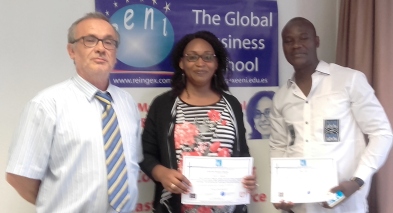
Students who pass the assessments and thesis will receive the Diploma of Professional Doctorate in International Business (DIB) specialization in Islamic Business issued by EENI Global Business School.
The Diploma of Professional Doctorate is awarded after assessing:
- Level of participation of the Doctoral Student in the Doctoral Subjects
- Research Work
- Thesis Defense
Oussama Bouaziz (Tunisia), Doctorate in International Business, receiving the diploma
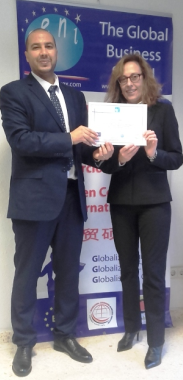
EENI Muslim Students
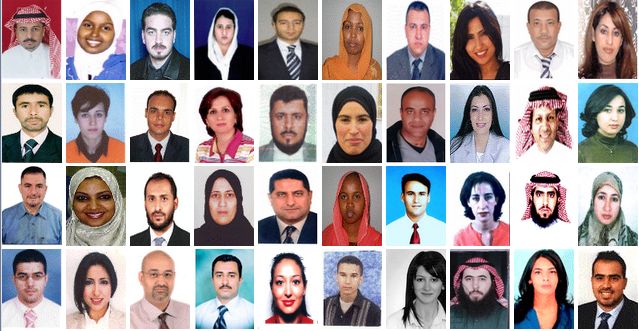
(c) EENI Global Business School (1995-2024)
We do not use cookies
Top of this page



